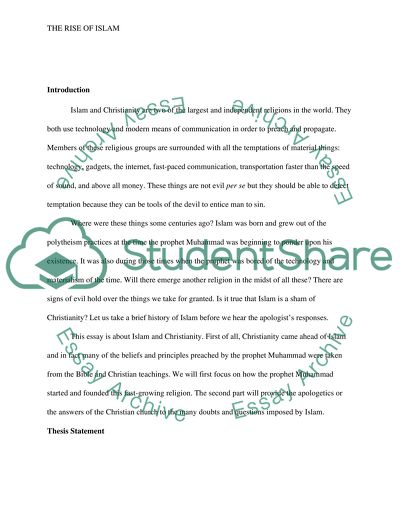Cite this document
(“THE RISE OF ISLAM Term Paper Example | Topics and Well Written Essays - 3250 words”, n.d.)
Retrieved from https://studentshare.org/religion-and-theology/1398152-the-rise-of-islam
Retrieved from https://studentshare.org/religion-and-theology/1398152-the-rise-of-islam
(THE RISE OF ISLAM Term Paper Example | Topics and Well Written Essays - 3250 Words)
https://studentshare.org/religion-and-theology/1398152-the-rise-of-islam.
https://studentshare.org/religion-and-theology/1398152-the-rise-of-islam.
“THE RISE OF ISLAM Term Paper Example | Topics and Well Written Essays - 3250 Words”, n.d. https://studentshare.org/religion-and-theology/1398152-the-rise-of-islam.


